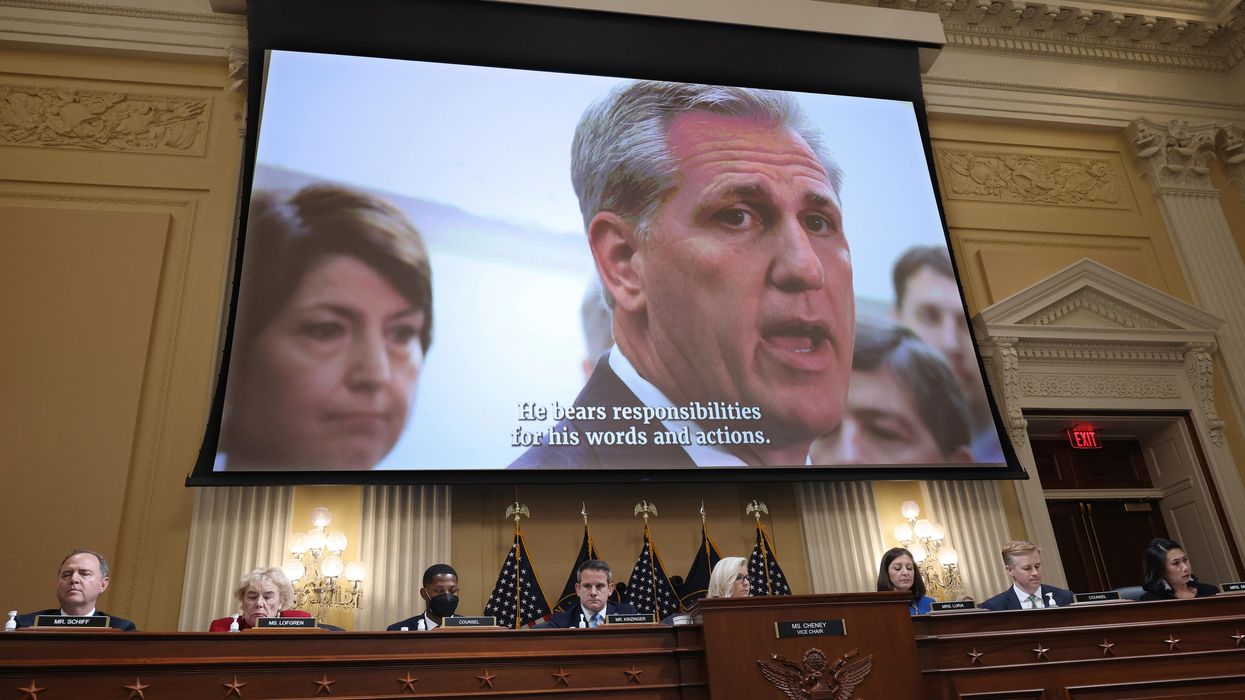Goldstone’s most recent book is "On Account of Race: The Supreme Court, White Supremacy, and the Ravaging of African American Voting Rights."
Whether one watches Fox News or MSNBC, reads The New York Times or the Wall Street Journal, it has become difficult to view the United States as anything but a game of political dodgeball, with two opposing teams that loath one another trying to knock the other out by whistling partisan fastballs at any vulnerable opponent. Gone are the days of what Richard Nixon liked to call “the great silent majority” — a phrase he appropriated from Homer, who used it to describe the dead. There is not much silence in politics these days. Nor is there much reasonable discourse. Screeching has largely taken its place.
By all accounts, somewhere between 80 percent and 90 percent of the American electorate is frozen in ideology and party affiliation, with Democrats having a slight advantage, although that edge is often not reflected in voter turnout. That leaves roughly one tenth to one fifth of American voters who may be persuadable by either of the two parties. Not unlikely is that most of those in the middle find something both to like and to dislike about Democratic and Republican policies and those who represent them.
Regardless of how small this group of persuadables may be, they are the key to America’s future. They are the tie-breaking votes. It is these independents to whom the task of choosing between two political parties, whose imperfections are both glaring and ubiquitous, is entrusted. They will decide on which of two radically different paths the United States will follow, leaving the losing side furious and likely uncooperative in bending to the national will. But not only will they select who rules the nation in the short term and what policies are put in place — on them may well rest the very future of democracy in the United States.
With the stakes this high, one can only hope that all of those entrusted with this immense responsibility watched the Jan. 6 hearings. The question then becomes whether what they saw is sufficiently persuasive to make party affiliation, ideology, policy initiatives, and even visceral dislike of one or both parties secondary. In coming elections, these voters will determine whether the threat to the often slow and tortuous progress the United States has made over more than two centuries in becoming a genuine democracy, a nation that actually ascribes to the notion that all of us are created equal, overwhelms what in simpler times would be considered crucial questions.
There should be little doubt.
To say the picture painted by the committee’s seven Democrats and two Republicans has been damning is an understatement. In fact, the most effective testimony was given by men and women whose conservative credentials are indisputable, and loyalty to Donald Trump, at least until after the 2020 election, was unquestioned. Leaving aside whether Trump is either a liar or delusional — and there seems to be no third option — that he behaved in a manner that was half Mafia don, half petulant 4-year-old, has been reaffirmed by a series of witnesses, almost all Republicans, who range from sophisticated high-priced lawyers to state officials to a young woman who was the first in her family to attend college to a poor fool from Ohio who lost his job and his house for believing the word of a man who likely viewed him and those like him with contempt.
The hearings, orchestrated by former ABC news chief James Goldston (whose surname seems short a final “e”), was turned from standard C-SPAN flat cadenced droning to a “Game of Thrones”-caliber cliffhanger, replete with surprise witnesses, punchy video clips, and episodes kept brief enough to not tax Americans’ stunted attention spans. Even Fox News, which initially intended to ignore the hearings, likely to air specials on Hillary Clinton’s emails and Hunter Biden’s laptop, was forced to scrap that plan and air the hearings live — although they balked at pre-empting their prime time stars. Still, theater aside, the case being made was so powerful, so well documented, so without potential contradiction, that to conclude anything but that Trump at the very least violated his oath of office seems impossible.
Republican complaints that the questioning was one-sided ring a bit hollow, since House Minority Leader Kevin McCarthy, who may well become speaker next year, decided to boycott the proceedings when his suggested appointments to the committee, which included members who may have actually been involved in the events, were rejected. Grousing now brings to mind the Yiddish joke, defining “chutzpah” — nerve — as a man who murders his parents and then throws himself of the mercy of the court on the grounds that he is an orphan.
Whether Trump is eventually indicted is not really pivotal — he is very adept at skating past overt violations of law and making his actual guilt difficult to prove in court, leaving underlings and supporters, like the Ohio man, to pay the price for his malfeasance. Nor should the fact that all of these “see the light” Republicans, some of whom, like Pat Cipollone, only came forward to save their own reputations, were all too content to go along with Trump’s questionable adherence to both the law and decency when it seemed that he might remain in power.
And so, in local and national elections in the coming months, to say nothing of the presidential election in 2024, that small slice of the electorate that actually considers both sides before casting their votes will be charged with determining whether a group of men and women who would undermine the foundation on which American democracy is built will be allowed to once again attempt to do so. We can only hope they make the right choice.




















